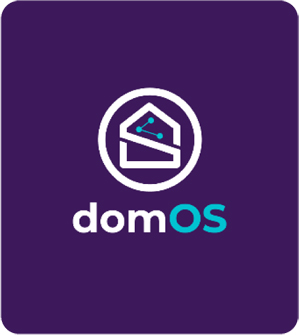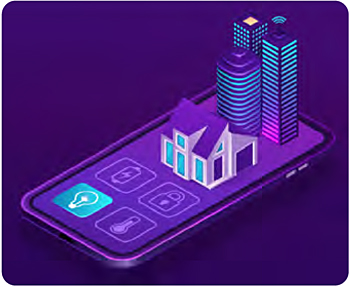 Insight
Insight
Digitalisation is progressing at a
fast speed in nearly all application
domains. In this respect, buildings
– and especially energy in buildings –
are behind the times. Consequently,
facility managers and occupants have
generally a limited understanding of
their building as an energy system,
and buildings are not acting as active
nodes of the energy grid they are
connected to.
Admittedly, increasing number
of smart appliances and devices,
ranging from smart coffee machines
to online heat pumps, are available
on the market. However, such silo
solutions, whose individual relevance
is not questioned, do not come up
with the expectations of digital energy
in buildings for several reasons:
- Energy appliances for heating and cooling, which are by far the highest energy consumers in buildings – have a long lifespan. Many of them are from the predigital area and feature no data interface.
- Deployment of services based on several smart appliances (e.g., energy management for photovoltaic inverter, electric vehicle charger, heat pump, and smart meter) is cumbersome, because of the heterogeneity of the digital interfaces.
- Higher-order energy systems (local energy communities, distribution grids, energy markets) cannot activate the energy flexibility of buildings due to lack of shared digital interfaces.
- The multiplicity of independent smart solutions degrades the user experience (multiple user interfaces and access control procedures).
 domOS project aims at defining and
prototyping an "operating system for
buildings" acting as an intermediary
between applications and field
devices and appliances. The domOS
operating system will offer two basic
services: let applications access the
building infrastructure independently
of the type or brand of appliances
and enable building occupants to
manage their privacy centrally. The
vision is to apply the same recipe
that boosted the development of
applications for smartphones for
buildings.
domOS project aims at defining and
prototyping an "operating system for
buildings" acting as an intermediary
between applications and field
devices and appliances. The domOS
operating system will offer two basic
services: let applications access the
building infrastructure independently
of the type or brand of appliances
and enable building occupants to
manage their privacy centrally. The
vision is to apply the same recipe
that boosted the development of
applications for smartphones for
buildings.
Unlike the smartphone ecosystem,
the smart building ecosystem
is not dominated by a few big
players. To trigger adoption by many
stakeholders in a fragmented scene,
domOS leverages both existing and
emerging standards from recognised
bodies. The aim is for domOS to
be compliant with existing and
new devices and appliances and
allow their integration with low
development effort.
About domOS
domOS is a collaborative research project supported by the European
Commission under the Horizon 2020 Programme for Research and
Innovation (Call LC-SC3-EE-4-2019-2020), with a duration of 36 months.
The project consortium is made up of 11 partners from four European
countries. Each partner develops activities in smart energy services
for buildings, either as a technology provider or as a service operator.
This mix, together with the five demonstration sites, ensures that the
developed solutions will be applicable in a large range of use cases.
"domOS is at the crossroads of smart buildings and of the Internet of
Things (IoT). The consortium wants to bring new IoT developments for
interoperability, privacy management, and provisioning to the smart
building world. This will provide European buildings with a doable path
for coordinated stepwise deployment of smart services" says Dominique
Gabioud, the Project Coordinator from the University of Applied Sciences
Western Switzerland.